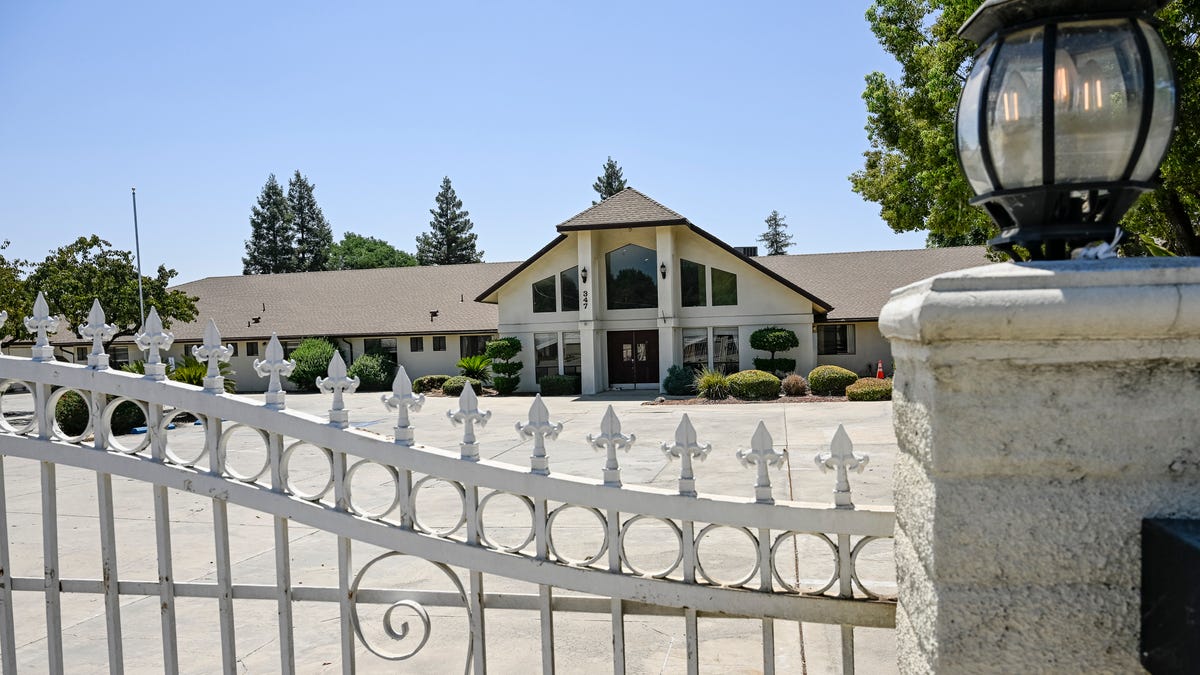
Apple health app features: How to track your mental health on your iPhone
It’s important to keep track of how you’re doing. Here’s how to easily track your mental health with your iPhone.
Problem Solved
Tulare County is expanding plans for a new mental health and substance abuse center in Visalia.The new facility will allow the county to treat more patients locally instead of sending them elsewhere.The mental health center is projected to open in November 2027.
Plans for the future Tulare County mental health center, which will treat those with substance abuse issues, have expanded following the awarding of additional grant funding.
The center will be at 347 E. Walnut Ave., Visalia, the former site of Casa Grande Senior Care Homes and Assisted Living.
“What it means for Tulare County is it really opens up opportunities to build out our infrastructure to bring community-based services here to our local individuals that suffer from severe and persistent mental illness,” said Donna Ortiz, Tulare County Health & Human Services director.
“A locked residential facility that can treat individuals according to new LPS law is groundbreaking for us,” said Dr. Casie Ennis, HHSA deputy director for behavioral health services, referring to the Lanterman-Petris-Short Act, which established strict protections for mental health clients.
“We’re sending a lot of folks who need higher level of care out of county,” she said. “So, to keep them closer to home and closer to support systems, that will be new and very much needed for our communities.”
Initial plans for the new facility were based on $11 million in state funding that was announced on May 12. The money was Tulare County’s share of $3.3 billion from Proposition 1, which passed in March 2024 to deal with mental health issues in California.
“This funding opportunity was really to fill gaps in funding for projects that were shovel-ready,” Ortiz said. “We had a project that was shovel-ready because we purchased the Casa Grande facility in Visalia on the corner of Walnut and Santa Fe last year. We used other funding and earmarked some monies that we had to purchase that property.”
Since then, the state awarded $9.9 million in Behavioral Health Continuum Infrastructure Program (BHCIP) funds to Tulare County “to construct, acquire, and rehabilitate real estate assets … to expand the community continuum of behavioral health treatment resources.”
In addition, the county was awarded $840,690 in Opioid Settlement Funds for the center.
“There has been a settlement from some of the pharmaceutical companies that over-prescribed opiates, and those dollars were dedicated to providing treatment services and facilities for individuals who are struggling with substance use disorder services,” Ennis explained. “So for the state of California, those dollars were sent down to counties in order to build out different levels of service through the communities.”
The new funding will allow the county to develop the second facility on the site.
“Building 1, which is going to be the augmented board and care facility, is going to have 60 beds,” Ennis said. “It’s going to be an unlocked facility for those who need more support as far as medication and groups and services, but who are also a little further along on their wellness and recovery journey.
“The second facility on the campus will be a mental health rehabilitation center and a substance use disorder residential treatment center,” she said. “This will have two conjoined buildings and will include 60 beds for the mental health rehabilitation center. And the residential building will have 16 beds.
“We are working with a couple of community-based partners that will operate these facilities, and are also partnering with our architect to ensure we’re considering all things that will be necessary to provide treatment, that the infrastructure will support that work,” she added.
There may be some financial challenges at the new center as the result of Proposition 36, as offenders who choose the option of drug rehabilitation will be treated at the new center.
“There is no funding for Prop 36, but this facility is intended to support individuals who might be in need of services,” Ennis said. “It’s important to understand that individuals who are able to be evaluated because of Prop 36, depending on their level of acuity for substance use disorder, can be connected to different forms of residential services or treatment, so it’s not necessarily intended to serve all Prop 36 folks.
“It really depends,” she continued. “Depending on the specific needs of the individual and their level of acuity of substance use disorder or behavioral health conditions, they might need the more intensive level of substance use disorder treatment facility that Casa Grande will provide. Others might benefit from more residential (treatment). It does depend on the individual’s evaluation, and then treatment plan to determine their level of care, which will include Casa Grande treatment.”
The new mental health center is expected to open in November 2027.
“That’s the goal,” Ennis said. “We’ll continue to update the community if that changes with the architect. They actually have gone to bid and do have a contractor that we’re preparing to work with.”
HHSA is also currently working on a new name for the center.
“The new building name is going through an internal process of approval as we are seeking to name it after a local (behavioral health) advocate,” Ennis said. “We will make an announcement about that soon.”

